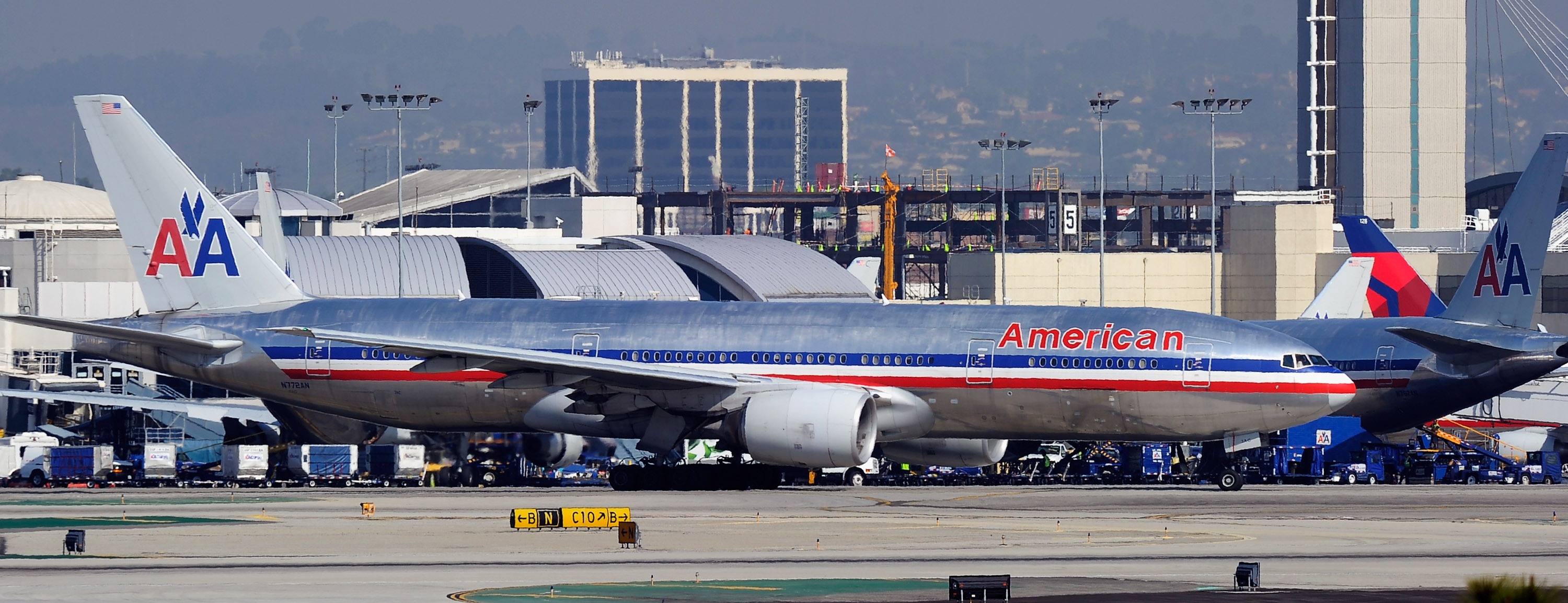US airlines still see higher profits but warn of shutdown delays
American Airlines expects higher profitability in 2019 on cost cuts and expansion of its “”premium economy” program that introduces greater price differentiation to ticketing, boosting profits. (KEVORK DJANSEZIAN)
New York (AFP) – US airlines warned Thursday of significant travel delays if the US government shutdown goes on much longer, but signaled they still expect solid profits in 2019.
Executives at American Airlines and smaller rivals Southwest Airlines and JetBlue Airways expressed frustration as the shutdown extended into its 34th day, a dynamic that has forced key airport officials to work without pay, testing the system in a way that one executive called “crazy.”
“At this point we have not seen a significant impact on our operations nor our bookings,” said Robin Hayes, chief executive of JetBlue.
“However we are increasingly concerned about the shutdown’s consequences for convenient and efficient air travel and for the economy overall,” he added.
“We are close to a tipping point, as many of these employees are about to miss a second paycheck.”
All three companies offered upbeat financial outlooks based on expectations that strong customer demand would persist and that the shutdown would end soon.
– Strong demand –
American Airlines topped profit forecasts in the fourth-quarter on higher and revenues and projected 2019 profit of $5.50 to $7.50 a share, well above the $5.87 expected by analysts.
“Demand for air travel remains strong,” said American Airlines Chief Executive Doug Parker. “People are flying and I expect they will continue to want to fly as we get the government opened again.”
Parker praised air traffic controllers and security screeners with the Transportation Security Administration whose work has minimized the impact of the shutdown on the flying public.
“We’re putting a strain on people who’ve been working while missing a couple of paychecks and that will at some point result in people not being at work,” Parker said on a conference call with reporters and analysts.
“When we don’t have enough TSA officers, you’ll see longer lines, when we don’t have enough (air traffic) controllers you’ll see more delays in airspace.”
– Breaking point? –
Some US airports have faced rising absenteeism, forcing them to scale back the number of security lines available to screen passengers.
Air transport workers have cautioned that the prolonged shutdown is endangering travel, warning in a joint statement from three unions on Wednesday that “we cannot even calculate the level of risk currently at play, nor predict the point at which the entire system will break.”
Speaking at an event at one of Washington’s main airports on Thursday, air traffic controllers warned that the pressure is starting to tell as workers report for full 10-hour shifts, and then have to drive for ride-sharing firms Uber and Lyft before and after work to bring in money for their families.
But airline executives expressed confidence in the safety of the system, saying increased delays were their biggest fear from a prolonged shutdown.
“There is a risk that air traffic will have to be slowed down,” Southwest Chief Executive Gary Kelly said in an interview with CNBC.
“They will be safe, but it may not be very efficient and it certainly puts a lot of stress on the people,” he added.
Southwest said the shutdown would hit first-quarter revenues by $10 to $15 million and that it was also forced to suspend certification efforts for new flights between California and Hawaii because of furloughs at the Federal Aviation Administration.
The shutdown “creates a lot of slop for us to manage, but we’re going to manage it,” Kelly said. “It is a crazy way to run our country. Absolutely absurd.”
Shares of American, JetBlue and Southwest all gained at least five percent.
Jim Corridore, analyst at CFRA Research said the share gains reflected the market’s view that the disruption will be short-lived.
“Investors should be focused on underlying demand, earnings, earnings power and valuations, and in this context the stocks largely look very attractive,” Corridore told AFP in an email.
“If the situation results in a sustained downturn in demand for air travel that would hurt unit revenues and pricing that would be a different story,” he said, adding that such an outcome is not likely.
Disclaimer: This story is published from a syndicated feed. Siliconeer does not assume any liability for the above story. Validity of the above story is for 7 Days from original date of publishing. Content copyright AFP.


